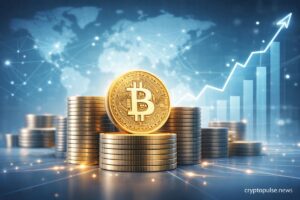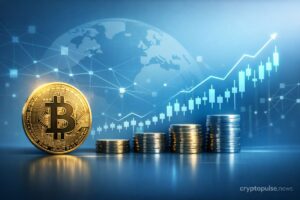El Salvador Marks Bitcoin Day With 21 BTC Buy Despite IMF Pressure
El Salvador purchased 21 BTC on the fourth anniversary of its Bitcoin Law, pushing its treasury past 6,313 BTC even as IMF loan conditions call for a halt.
El Salvador has doubled down on its Bitcoin strategy, purchasing 21 BTC on September 7 to commemorate the fourth anniversary of the nation’s groundbreaking Bitcoin Law. The move comes despite ongoing tensions with the International Monetary Fund (IMF), which has urged the Central American nation to halt new Bitcoin acquisitions as part of a $1.4 billion loan agreement signed last year.
Celebrating “Bitcoin Day” With a Symbolic Purchase
President Nayib Bukele confirmed the latest acquisition, explaining that the government chose to buy 21 BTC to mark the symbolic date. El Salvador first adopted Bitcoin as legal tender in September 2021, becoming the world’s first country to formally integrate the cryptocurrency into its financial system.
The country’s Bitcoin Office has branded the anniversary “Bitcoin Day,” highlighting the government’s ongoing commitment to the asset despite market volatility. Since March 2024, El Salvador has been steadily accumulating one Bitcoin per day, a strategy that has now brought its holdings to 6,313.18 BTC—valued at over $700 million. Over the past seven days alone, the country added 28 BTC to its treasury.
Expanding the Bitcoin Strategy Beyond Purchases
El Salvador’s embrace of Bitcoin extends beyond direct acquisitions. In May 2025, the government partnered with Swiss technology firm CitizenX to launch the Freedom Passport program, the world’s fastest Bitcoin-backed citizenship initiative. Through this scheme, global investors who contribute $1 million in Bitcoin (BTC) or Tether (USDT) can secure a streamlined path to Salvadoran citizenship.
CitizenX also became an official processor for the government’s “Adopting El Salvador” program, which integrates blockchain into the country’s second-citizenship process. The initiative targets high-net-worth individuals seeking faster routes to global mobility while reinforcing El Salvador’s position as a crypto-friendly jurisdiction.
IMF Loan Conditions in Conflict With Bitcoin Policy
The IMF has repeatedly criticized El Salvador’s Bitcoin experiment, warning in 2021 that making the asset legal tender could trigger “a number of macroeconomic, financial and legal issues.” Those concerns resurfaced when the government secured a $1.4 billion loan in December 2024, which included conditions aimed at limiting its exposure to cryptocurrency.
According to IMF requirements:
- Public entities must suspend voluntary Bitcoin purchases.
- The government must withdraw from its Chivo wallet program, which was launched to promote Bitcoin adoption.
Despite these terms, El Salvador has not halted its daily BTC accumulation, complicating compliance with the agreement. The government has also split its Bitcoin treasury across 14 wallet addresses to enhance security, citing potential future risks from quantum computing.
Building a Bitcoin-Integrated Nation
El Salvador’s Bitcoin Office has promoted the country as “Bitcoin Country,” emphasizing its achievements since 2021. Among the most notable milestones are:
- 80,000 public servants certified in Bitcoin education.
- Passage of a law enabling Bitcoin banks and a framework for BTC-based capital markets.
- Implementation of tokenization projects for real estate and capital raising through a regulatory sandbox proposed in collaboration with the U.S. SEC.
In a post celebrating recent achievements, the Bitcoin Office declared:
“Guided by EXCELLENCE ONLY, our results prove that builders can just build extraordinary things.”
These initiatives reflect Bukele’s long-term mission to position El Salvador as a global hub for digital assets, even in the face of international skepticism.
Read more: Top 10 Crypto-Friendly Countries in 2025
Diversifying With Gold Reserves
While Bitcoin remains central to El Salvador’s strategy, the country has also taken steps to diversify its reserves. In August 2025, the Central Reserve Bank purchased 13,999 troy ounces of gold worth $207.4 million, its first major gold acquisition since 1990. The move increased total holdings from 44,106 to 58,105 troy ounces.
Officials said the decision followed IMF guidance and signaled a temporary pause in Bitcoin accumulation. The gold purchase highlights El Salvador’s efforts to balance its Bitcoin-first approach with traditional financial instruments, a step aimed at reassuring global lenders and investors.
Balancing Innovation and Global Pressures
El Salvador’s experiment with Bitcoin has transformed the country into a test case for national-level cryptocurrency adoption. On one hand, the strategy has drawn global attention, foreign investment interest, and new partnerships. On the other, it has sparked concerns from multilateral institutions like the IMF, which remain wary of the macroeconomic risks.
The simultaneous acquisition of Bitcoin and gold underlines Bukele’s dual approach—embracing cutting-edge financial technologies while hedging against volatility through traditional assets. With new programs in tokenization, citizenship-by-investment, and banking reforms, El Salvador continues to chart an unconventional path.
Even under IMF scrutiny, the country shows no sign of abandoning its Bitcoin experiment. The latest 21 BTC purchase on Bitcoin Day sends a clear message: El Salvador remains committed to its role as the world’s first “Bitcoin Country,” determined to blend digital asset innovation with sovereign economic strategy.








